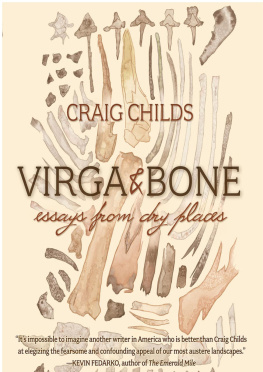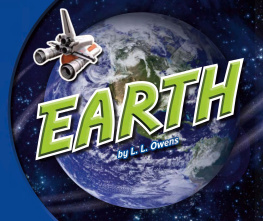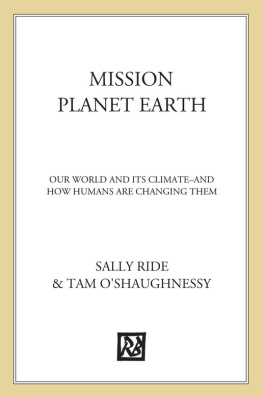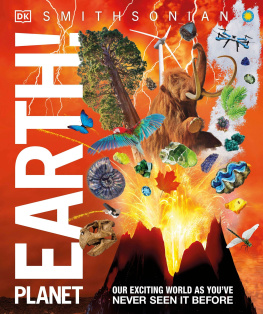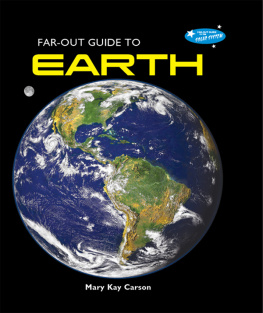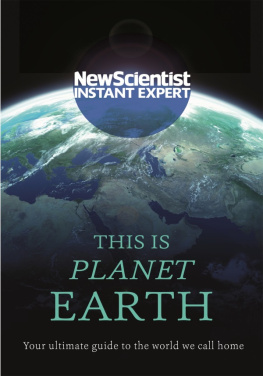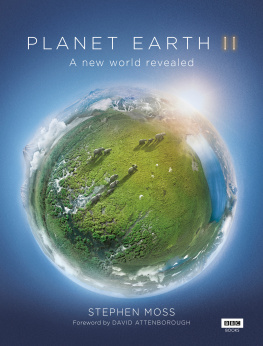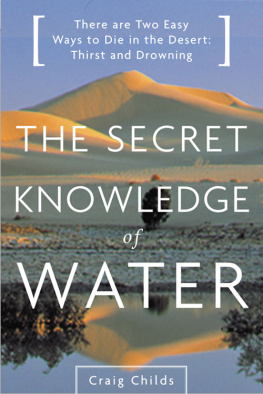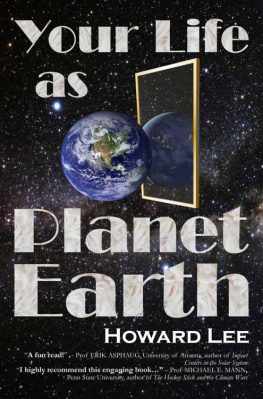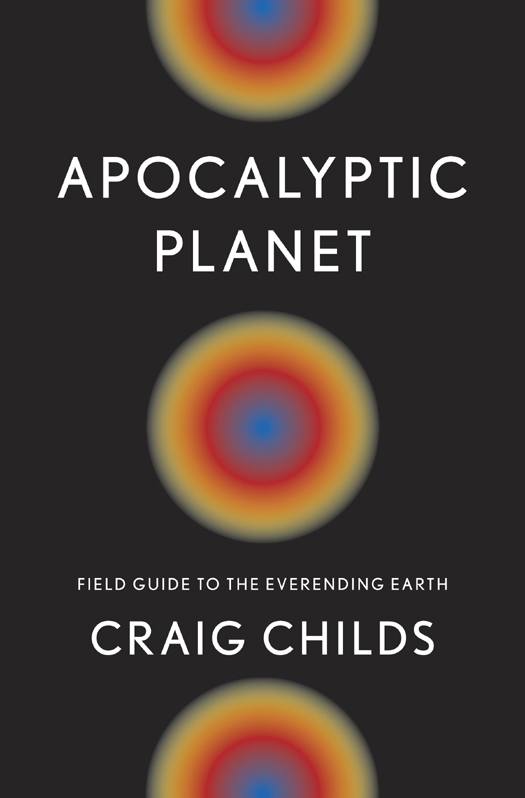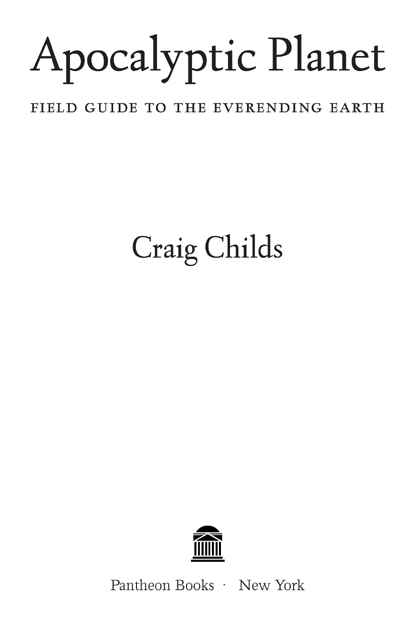Copyright 2012 by Craig Childs
All rights reserved. Published in the United States by Pantheon Books,
a division of Random House, Inc., New York, and in Canada by
Random House of Canada Limited, Toronto.
Pantheon Books and colophon are registered trademarks of Random House, Inc.
Portions of chapters in this book were previously published in the following
publications: Civilizations Fall in High Country News and in Orion,
Sea Rise in High Desert Journal, and Mountains Move in Mens Journal.
Library of Congress Cataloging-in-Publication Data
Childs, Craig, [date]
Apocalyptic planet : field guide to the everending Earth / Craig Childs.
p. cm.
Includes bibliographical references.
eISBN: 978-0-307-90781-3
1. EarthHistoryPopular works. I. Title.
QB631.2.C48 2012 550dc23 2012006012
www.pantheonbooks.com
Jacket design by Linda Huang
v3.1
For Regan,
the other side of the coin
The word apocalypse, from the Greek apoklypsis, originally referred to the lifting of a veil or a revelation. The common definition as a destructive worldwide event is more recent. In this book, it is both.
Contents
Introduction
I took the idea for this book from my aunt who was sitting on her kitchen floor weeping. We were in her home in Southern California with a broken refrigerator pulled out from the wall, food rotting inside. Streams of sugar ants laced the ceilings and baseboards. It was a seasonal infestation, tiny ants coming out of the ground and filing into her every room. She also had rats. We could hear them padding behind walls and along trusses overhead. I had found one dead in her bathroom vanity. The ants were all over it.
My aunt was in the middle of writing her own book about how to survive the end of the world. Her book was meant to prepare people for what she saw as a coming change, a much-heralded apocalypse and a dawning of a new age. Now she was having trouble just getting through her day.
I feel awful, she cried. Everything is falling apart.
She and I used to talk about end-times. That was years back in New Mexico, where she was born and raised almost within earshot of the first atomic explosion. She had looked me in the eye and told me the end was coming and I would be one of those who survived. With a sad and loving smile she had said, If anyone is going to make it, you are.
Why did my aunt believe this? Maybe because I could skin and eat a snake or knew how to start a fire in the rain. But I didnt know what exactly I was supposed to survive, or even if I wanted to. I was younger when she told me this, a bit more spry anyway. Now I was too chunky and balding to survive anything of consequence. I couldnt even fix her refrigerator. Nor could I do anything about the rats or ants, nor the wildfires that had begun burning in the hills above her house, nor the tectonic fault itching to slip directly beneath us. Even the divorce she was going through was beyond me. I crouched before her, and all I could do was put my arms around her as tears started again, her life crashing in all at once. Together we weathered the terrible squall, what is said to be the end of the world.
With a strained laugh, she sniffed and palmed away her mussed bangs. I feel so stupid, she said. I told her it happens to the best of us.
I put her to bed, pillows behind her back, and brought her a bowl of hot soup. When her eyes closed, I took her empty bowl. In the bathroom I doubled a grocery bag and removed that wretched rat, dropping its ant-maddened remains into a trash bin outside. I tidied her sink, quietly closed the door behind me, and made off with her book idea.
The term end of the world is thrown around as if we know what it means. Apocalypse? What sort of apocalypseone that destroys civilization, life, the entire planet? How does it work? Is there a way to stop it, or is it just going to steamroll us?
And are we even asking the right questions?
Most people, when you ask, are a little vague on the details. Informed mainly by blockbuster films, the popular vision is that the end will be rather sudden and accompanied by a thrilling soundtrack as cities slide into the ocean and global climates swing overnight. Sure, thats one way it could happen.
Robert Frost mused it would be by either fire or ice. His conundrum was a product of the nineteenth century. Frost missed the wider, more circular array of optionsvolcanic cooling of the atmosphere, fossil-fuel-generated warming, global permafrost-methane releases, reentering ejecta from an asteroid impact burning the planet and sending it into a biological tailspin, and so on. Since Frosts time, weve girdled the earth with temperature probes, gravity sensors, and mass-balance buoys. Ice caps have been cored, ancient geographies exhumed. Trace down through ice cores and ancient lake-bottom sediments, pick at fossils and ruined cities, and you will see that the scientific and anthropological records tell a much more complex story.
Like any book, this one does not have only one starting place. As much as it was my aunt, it was also an earthquake. In mid-January 1994, driving back from guiding a trip in Baja, I stopped in Los Angeles for one night. I was sleeping on a couch on the third floor of a concrete apartment building in Pasadena when, a couple hours before morning rush hour, one of the most violent urban quakes ever recorded in California struck the city. Dressed in nothing but a sheet, I was off that couch in about two seconds as the floor banged back and forth beneath me.
This was not a huge event in global terms, 6.7 on the Richter scale, but it was one of the fastest ground accelerations ever recorded on the continent. I didnt have time to rub my eyes or blink. I knew you were supposed to get in a doorjamb to protect yourself, and that is exactly what I did. In the darkened light of the living room, where Id just been, I could see shelves emptying themselves, books shuffling off the coffee table and onto the floor. This flimsy doorjamb wasnt going to save me if the building came down.
I had never been in an earthquake before, impressed by the sharpness of its pulses as if the building were being rapidly jerked around by its shoulders. This doorjamb seemed no place to be. I darted back into the living room, where I spread my feet and surfed the quake.
In those moments, my picture of the earth was remade. The floor felt as if foot pedals were pumping beneath me, a continental margin humped up on the back of a passing tectonic plate. Humans may have a big hand in carpeting the atmosphere with heat-trapping gases and dumping every toxin we can imagine into waterways, but when the earth decides to roll, it is no longer our game. Right then, this wasnt the planet I thought it was. All bets were off. The ground was moving, and overpasses were pancaking all around the city.
About ten seconds into it, the euphoria wore off. I must have instinctively known the tensile strength of concrete reinforced with tied rebar, and we were near the limit. I remember thinking, If this goes on for about five more seconds, this building is coming down.
At that moment, the shaking subsided. The tectonic rumble echoed away. I stood slack jawed, amazed. Car alarms must have been going off everywhere, but to my ear there was nothing but unbreakable silence. The world was again still.


